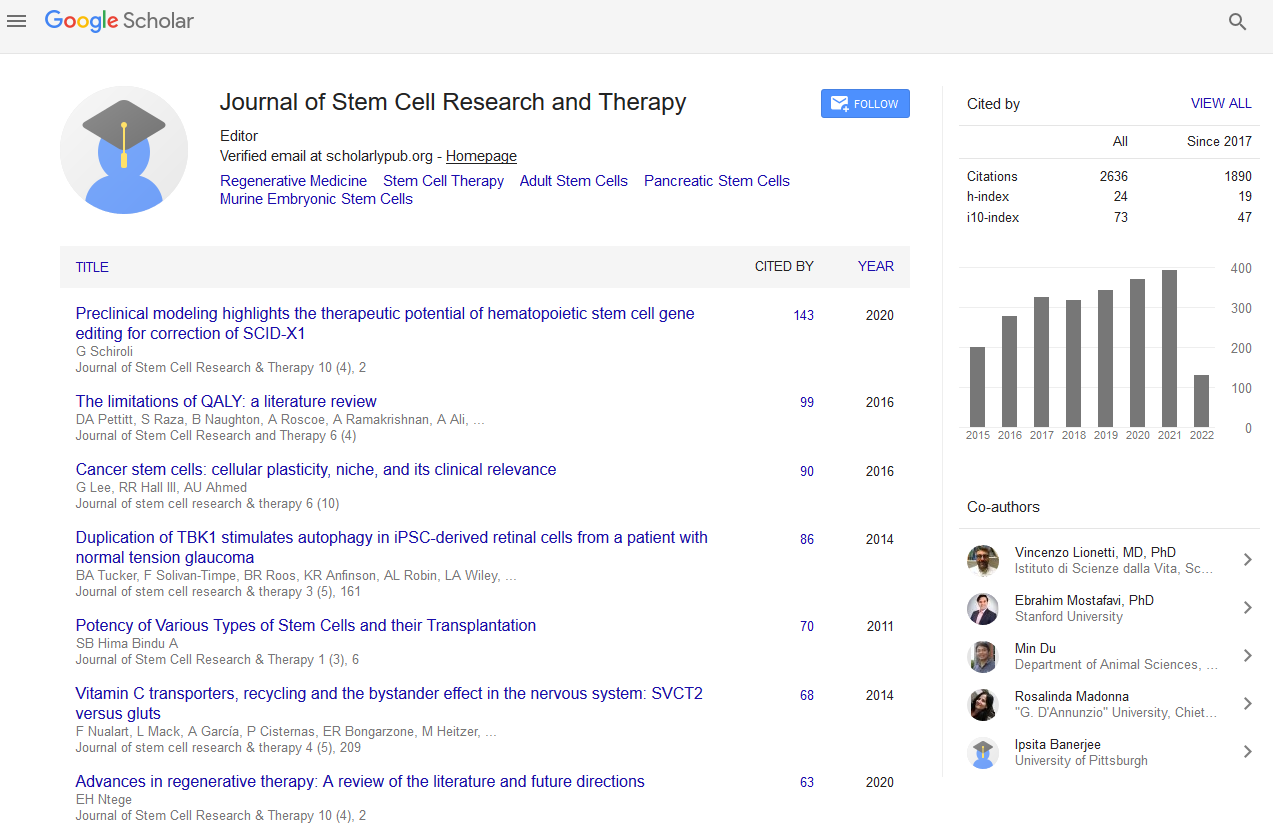Indexed In
- Open J Gate
- Genamics JournalSeek
- Academic Keys
- JournalTOCs
- China National Knowledge Infrastructure (CNKI)
- Ulrich's Periodicals Directory
- RefSeek
- Hamdard University
- EBSCO A-Z
- Directory of Abstract Indexing for Journals
- OCLC- WorldCat
- Publons
- Geneva Foundation for Medical Education and Research
- Euro Pub
- Google Scholar
Useful Links
Share This Page
Journal Flyer

Open Access Journals
- Agri and Aquaculture
- Biochemistry
- Bioinformatics & Systems Biology
- Business & Management
- Chemistry
- Clinical Sciences
- Engineering
- Food & Nutrition
- General Science
- Genetics & Molecular Biology
- Immunology & Microbiology
- Medical Sciences
- Neuroscience & Psychology
- Nursing & Health Care
- Pharmaceutical Sciences
Abstract
Role of Donor Virus-specific Immunity in the Onset of BKV-related Hemorrhagic Cystitis after Hemopoietic Stem Cell Transplantation
Sabrina Basso, Mattia Algeri, Antonella Gurrado, Michela Cioni, Ilaria Guido, Giuseppe Quartuccio, Luisa Strocchio, Alessandra Tolva, Maurizio Zavattoni, Fausto Baldanti, Hans H Hirsch, Marco Zecca1 and Patrizia Comoli
BK virus-related hemorrhagic cystitis is one of the major complications of hematopoietic stem cell transplantation. Because an immune reconstitution pattern of disease has been proposed as alternative pathogenetic model, in this study we focused on the link between BKV specific immune responses in the HSCT donor and the development of HC in paediatric HSCT recipients. We evaluated the frequency of IFN-γ-producing cells, by means of Elispot assay and flow cytometric measurement of T-cells CD8+/INFγ+, and specific cytotoxicity, in samples obtained from a cohort of 30 HLA-matched unrelated or haploidentical stem cell donors, divided into three groups, according to BKV positivity in urine and development of HC in recipients. We found that HSCT donors whose recipients developed HC have lower, though not statistically significant, levels of BKV-specific T cells, as compared with donors of recipient with isolated BK-viruria or without viruria. Although we cannot rule out that in some cases also immune reconstitution could play a role in the pathogenesis of HC, our preliminary data suggest that BKV-related HC may be related to low donor BKV-specific cytotoxic T cell transfer, perhaps coupled with impairment in BKV-specific T cell expansion posttransplant.


